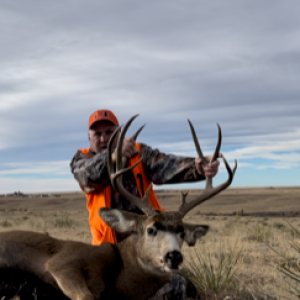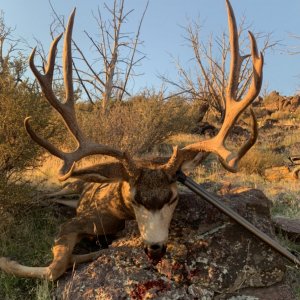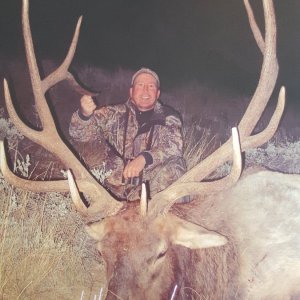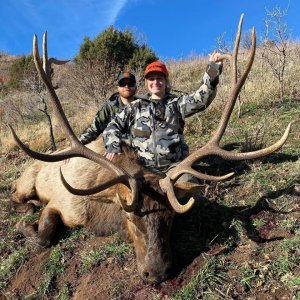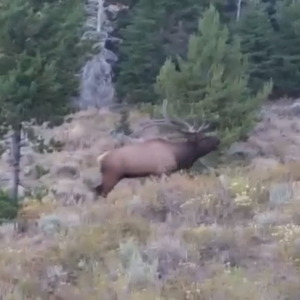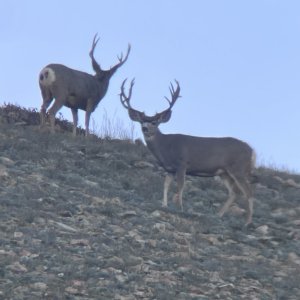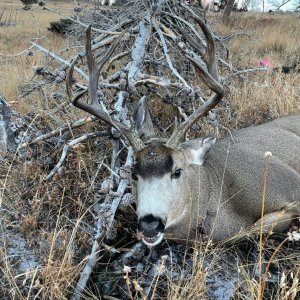So if Federal Public Land is transferred to the States we should assume it will become STATE TRUST LANDS as natural resources will be used to maximize profit for the state(s). A guy that goes by Trial153 explained pretty well why this would be a huge mistake for the public that enjoy using public land.
Quote from Trial153:
?The State Land Boards will explicitly claim, "STATE TRUST LANDS ARE NOT PUBLIC LANDS." Go to the Colorado State Land Board website and that is the first sentence of the second paragraph.
And, they are correct. Those lands are held by the state for a select group of beneficiaries (school systems) and a very specific purpose - funding the schools.
As the 10th Amendment dictates, the Feds cannot force the states to manage those lands in any way other than the state, via the State Land Board, sees fit. Immediately, the logical theories like you stated, start falling by the wayside.
And here is how it plays out in a manner that causes concern and why these states will not agree to the "theory" you logically proposed. I'll use the easiest examples, to illustrate the points; Colorado and Oregon.
Colorado does not allow hunting, camping, or other recreation on State Trust Lands, unless those rights are leased by the state wildlife agency. Due to budget limitations, CPW only leases a small fraction of the State Trust Lands for public recreation access; a very small portion.
Given CO has 23 million acres of BLM and USFS lands, transferring those lands to the CO State Land Board means hunters lose 23 million acres of access. As a hunter, I ask the politicians promoting the idea, "HOW DO WE REPLACE 23 MILLION ACRES OF PUBLIC HUNTING ACCESS, JUST IN COLORADO?"
The politicians don't have an answer when asked the question. They change the subject.
Some would say, force the states to allow access if those lands were transferred. I doubt Congress is inclined to reverse 240 years of the 10th Amendment by telling the states what to do in order that we would have hunting access.
I wish it was different in these western states, but that is how the State Land Boards operate. In NM and WY you cannot camp on these State lands. In MT, we had to fight the legislature for to change the law from the Colorado model to a new law where we can now pay a fee to hunt these lands.
Imagine transferring millions of acres in NM and WY where you could no longer have your elk camp in the Gila and you were expected to drive from Datil or Magdalena every day. Or you finally drew the Region G deer tag, but you had to hike in ever morning (about 8 hours) and hike out every night (about 5 hours) because these are now State lands and you cannot camp on them. Imagine if you hired an outfitter to take you into the Thoroughfare Country in NW WY and you had to ride horses in 20+ miles each morning and back out each evening, because these lands are now state lands and WY state lands are off limits to camping.
Hopefully that illustrates how much hunting access would be lost under a state transfer scenario.
Then, we have to look at the state Constitutional mandates these land boards have to maximize profits from state lands for funding schools. Profit maximization is the requirement of these state agencies.
I have no problem with lands being managed for profits. But, given the legal environment of the west, a lot of places you cannot manage lands profitably due to litigation under the ESA or other obscure laws. These laws such as the ESA apply to all landowners, BLM, USFS, private, or States, so it is a reality of the landscape.
The best example is Elliot State Forest in Oregon, comprised of 90,000 acres of productive timber land owned by the state land agency and formerly managed for a profit while allowing public recreation.
Or maybe I should restate as; managed profitably until the litigation started. Now, due to litigation, the State Forest has lost a ton of money and this very popular Forest is being sold. The state land board has no recourse, as they are mandated by state law/constitution to either manage for a profit or dispose of the land.
In the scenario you suggested, the states would not accept ownership of the lands without the right to dispose of them. That would burden them with the costs and obligations of litigation currently paid by the Feds, road maintenance, wild fire suppression, invasive weed control, property taxes to the counties, with no assurance they could make a profit on lands, especially in locations under ESA or other litigious issues.
A few examples of how litigation would sink the states if they took the lands. All of Western MT is covered by ESA issues. All of Western WY is covered by ESA issues. Most of Eastern and Northern ID are covered by ESA issues. Most of SW NM and SE AZ are covered by ESA issues. If the wingnuts win their appeal of the USFWS decision to not list sage grouse and sage grouse end up on the ESA, the entire inter-mountain west will be subject to ESA regulations.
Those ESA areas have pretty much no land management occurring, due to litigation. None of the transfer advocates have been able to explain how the states could take on all of these land ownership costs and hold these lands in places where Federal-level litigation would prevent any income generating management strategies, plus incur the costs to litigate the issues.
As a result, the states would have no choice but to sell the lands, which is the end goal of the promoters of the schemes. They have no interest in better land management. The promoters use state transfer as a rallying point to hide their motives, which prior to fifteen years ago was openly advertised as an effort to sell the public lands. Then, getting their teeth kicked in, they came back with a new mantra of "transfer the public lands," seemingly less offensive to the American public. Same people, same funders, same motive, just wrapped in a different package.
I understand how on the surface this sounds good to those of us who believe in smaller government and would like to see the Federal agencies freed of all the litigation that prevents them from managing lands. But, when inspected with more detail, changing ownership of the lands is not the answer, rather changing Congress and removing the Congressional obstructionists who handcuff Federal land management is a better path.
Just one guy's opinion from 20+ years of having been in the political battles of it.?

